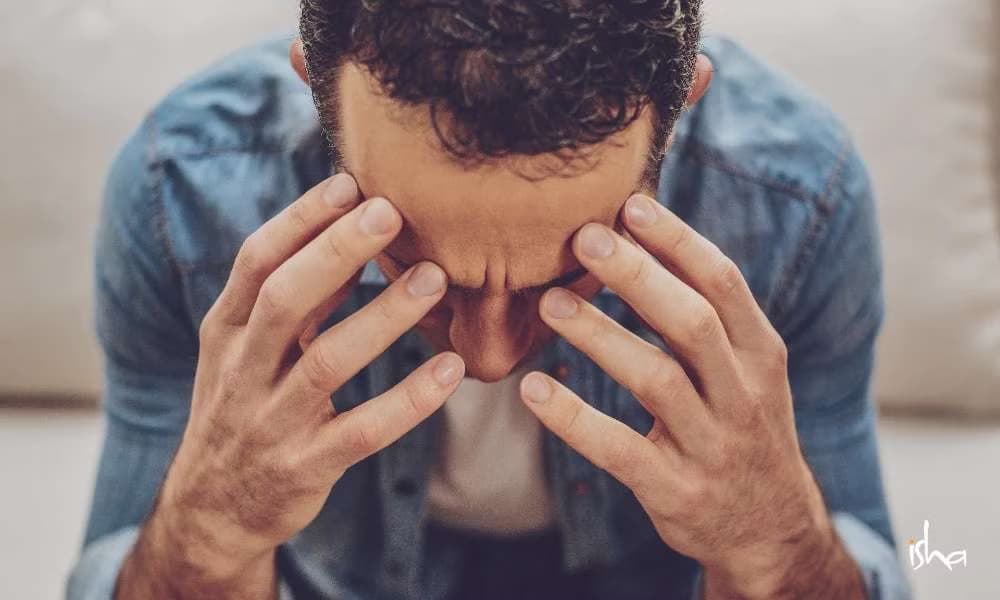There are two significant consequences of anxiety to consider.
The first, of course, is the mental effects of stress on your psyche and well-being. Irritability, sadness, and not feeling in control are all symptoms of mental anxiety and stress.
However, does emotional stress affect you physically too? The answer, unfortunately, is yes. 
Stress isn’t just something that can impact you mentally. It is a problem that causes harm throughout your body. And when combined, both the mental and physical symptoms of stress can feed off each other.
That makes the problem worse.
Here’s how emotional stress affects you physically, and what you can do about it.
Sleep
First, let’s look at one of the consequences of anxiety: sleep issues. When you are anxious it’s very hard to get adequate or restful sleep. At the very least, you toss and turn long after you go to bed.
Not getting rest for one night doesn’t set you back. However, what happens when it’s consistent?
Your body needs sleep. It’s an important time for your body to recharge and repair itself. But if you are struggling with insomnia, it’s very hard for you to get the rest you need. The result is that during the day you find it hard to stay awake and concentrate. And then, you end up reaching for a cup of coffee or an energy drink to avoid drifting off in the afternoons.
When you don’t get enough sleep you just feel terrible. That only adds fuel to your stress.
Irritable Bowel Syndrome (IBS)
Another problem that stress and anxiety aggravate is irritable bowel syndrome (IBS). IBS is a medical condition that can include:
- Pain in the abdomen
- Gas
- Cramps
- Diarrhea
- Constipation
The causes of IBS include contraction of the intestinal muscles, which can bring on the above-mentioned symptoms. Although stress doesn’t specifically cause IBS, it certainly makes the problem worse. In fact, stress and anxiety can be triggers for IBS.
Muscle Tension
Muscle tension is also one of the consequences of anxiety. Oftentimes people who experience chronic stress will report muscle tension or aches and pains in specific areas of their body. For example, shoulder and back pain is one area where you might feel muscle tension.
Of course, there is the constant pain associated with muscle tension. However, you also might struggle with doing physical tasks because the pain is so great. Also, nothing seems to permanently fix the problem, which causes even more stress and tension.
Headaches
Almost everyone has experienced a headache now and then. Tension headaches, in particular, are usually brought on by stress due to tight muscles (as noted above). Whatever type of headaches it may be, they are not fun. And in serious cases such as migraines, they can be debilitating.
Symptoms of migraines include:
- Throbbing pain in your head
- Nausea
- Blurred vision
- Lightheadedness
- Pain on one side of your head or your face
Typically, headaches might last an hour or two. However, a migraine could last for days and cause extreme pain and stress.
What to Do When Emotional Stress Affects You Physically
Stress can be detrimental to your physical health. However, there are many things that you can do to cope with stress and manage it.
For example:
- Exercise! Even light exercise such as walking can greatly help with controlling anxiety.
- Choose foods that are easy on the stomach.
- Avoid caffeinated beverages and energy drinks.
- Develop a mindfulness practice that includes breathing techniques and meditation.
- Maintain a consistent sleep schedule.
If you have tried applying these techniques but continue to struggle with the physical consequences of anxiety, consider contacting a therapist for additional support.
In my practice, for example, I utilize two very potent, natural therapeutic methods that can address the problem of stress causing physical problems, or making them worse. These cutting-edge psychological treatments—EMDR and Neurofeedback—can have tremendous positive effects on stress and anxiety symptoms.
—
The question isn’t if emotional stress can affect you physically. Rather, it’s how it affects you. When left unchecked, the physical consequences of anxiety can lead to real damage to your body. However, there are several things that you can do in your everyday life to counter those effects.
And if you would like to know more about anxiety therapy, I invite you to contact me.





